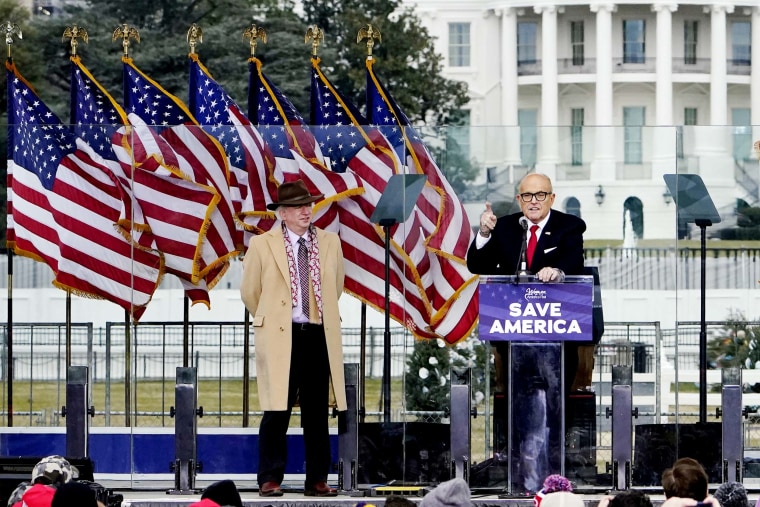Given John Eastman’s central role in trying to help Donald Trump overturn his 2020 defeat, it wasn’t surprising when the House select committee investigating the Jan. 6 attack subpoenaed the notorious Republican lawyer. But when Eastman sat down with congressional investigators, he reportedly pleaded the Fifth — by some accounts, nearly 150 times.
As we’ve discussed, this led to an ongoing court fight over Congress’ ability to subpoena the attorney’s records, which Eastman has claimed are protected by attorney-client privilege. The committee has pushed back, arguing that communications between attorneys and clients are not protected if they’re discussing committing crimes.
In late March, U.S. District Court Judge David Carter agreed, concluding, “Based on the evidence, the Court finds it more likely than not that President Trump corruptly attempted to obstruct the joint session of Congress on January 6, 2021.”
This was an extraordinary moment — there’s no modern precedent for a sitting federal court to conclude that a former president likely committed a felony — and it led to some additional important disclosures. That said, the court ruling applied to a set of communications from a specific time period, and the larger legal fight over other Eastman emails is ongoing.
Last night, Carter issued his latest ruling in this case, and as a Washington Post analysis explained, in brings the bigger picture into even sharper focus.
[Carter] ruled that more of Trump lawyer John Eastman’s documents and emails must be turned over to the committee, because they pertain to the likely crime and thus they are not privileged. And in doing so, Carter offered a notable account of the plot. He said the “plan to disrupt the Joint Session” of Congress on Jan. 6 — the crime he says was likely committed — “was fully formed and actionable as early as December 7, 2020.”
Well, that’s new.
To be sure, we knew that Trump, Eastman, and their allies plotted against a joint session of Congress, when lawmakers were tasked with certifying the results of the 2020 election. What these new revelations suggest is that the plot was “fully formed” much earlier than previously known.
Indeed, by all accounts, Eastman formally joined the Republican’s campaign legal team on Dec. 6, 2020. Evidently, the attorney brought a coup plan with him, since the scheme was “actionable” one day later.
According to a Politico report, the latest revelations also included an email from an unidentified attorney encouraging the then-president’s team not to pursue a case in court related to the Jan. 6 session of Congress — because an adverse ruling could “tank the January 6 strategy.”
As attorney Luppe Luppen (known on Twitter as “southpaw”) summarized this morning, “[A]ccording to a federal judge, the then-sitting president likely engaged in a monthlong criminal conspiracy to disrupt the joint session of Congress. The conspirators considered and jettisoned the idea of testing the legality of their plans in court. That same president then went out and fomented the mob violence that disrupted the joint session of Congress.”
Well, sure, when you put it that way, it sounds bad.
Of course, all of this comes in advance of the Jan. 6 committee’s public hearings, which begin in earnest tomorrow night. The fact that these Eastman materials are reaching Capitol Hill for review before the prime-time event is no doubt good news for investigators.

